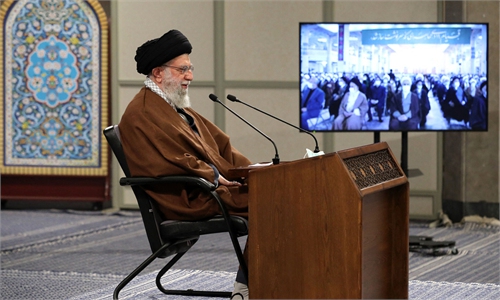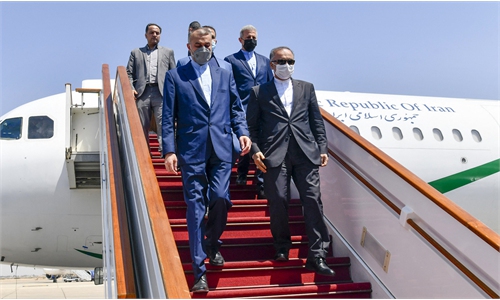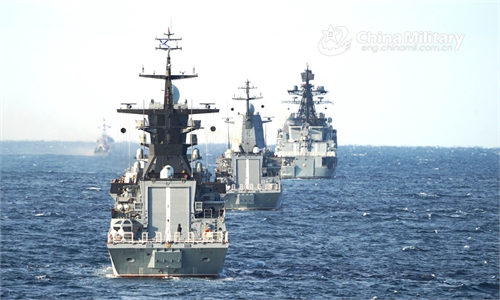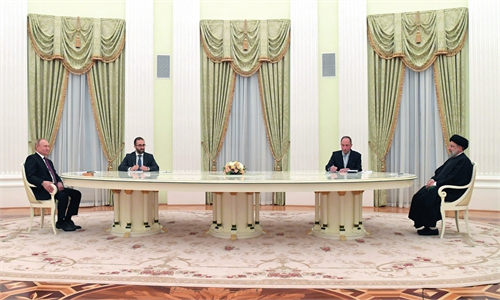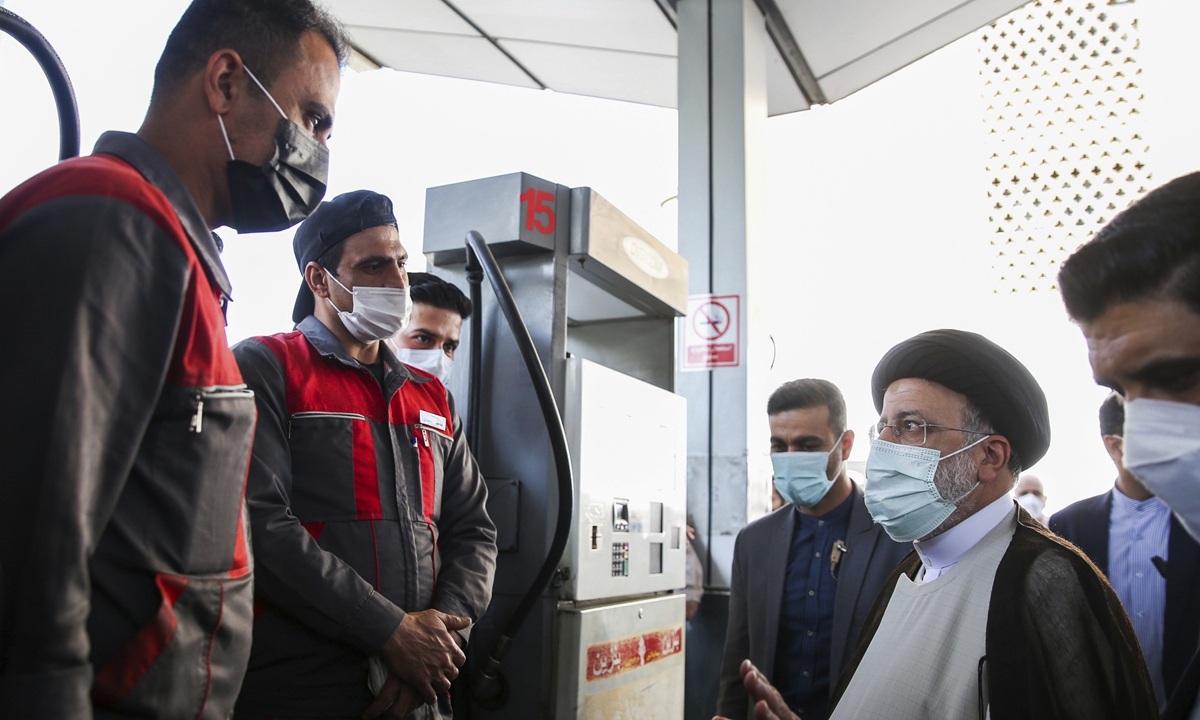
Iranian President Ebrahim Raisi (2nd from right) speaks with gas station workers in Tehran, capital of Iran, on October 27, 2021. Raisi said that a cyberattack which paralyzed every gas station in the Islamic Republic was designed to get "people angry by creating disorder and disruption," as long lines still snaked around the pumps a day after the incident began. Photo: AFP
Iranian President Ebrahim Raisi said on Wednesday Tehran is faced with no limitation for developing relations with Moscow.The Iranian president made the remarks in a meeting with his Russian counterpart Vladimir Putin during his visit to the Russian capital Moscow, according to the Iranian presidency's website.
Saying Iran and Russia are two main powers in the region and the world, Raisi noted that "the excellent relations between the two countries are at a strategic level and will further improve."
The two countries' common understanding of regional and international issues prepares the ground for their enhanced cooperation, he said.
The Iranian president noted that maximizing interactions with neighbors and allies is among the Islamic Republic's foreign policy priorities, stressing that boosting bilateral ties will bring economic prosperity to both countries and help ensure security in the region and the world. Raisi emphasized that fighting terrorism and organized smuggling of narcotics are among the pivots of bilateral cooperation. "The two countries' successful experience of cooperation in the fight against terrorism in Syria can be used in the Caucasus and Afghanistan," he added.
The Iranian president noted that "borders in the Caucasus, as well as the region's national and geopolitical sovereignty, are unchangeable," saying "the infiltration by the North Atlantic Treaty Organization [NATO] in the Caucasus and Central Asia under any disguise threatens common interests of independent states."
He added that since four decades ago, Iran has always stood against the US.
Turning to the situation in Afghanistan, Raisi said the sole way to ensure stability and lasting security in the country is through the formation of an inclusive government comprising and representing all Afghan ethnicities and groups.
Regarding Syria, Raisi underlined the importance of retaining the Arab state's territorial integrity, noting that the absolute sovereignty of Syria's central government over the entire country and its international borders is the sole way to guarantee security.
He stressed that "the vicious cycle of occupiers being replaced with terrorists" in Syria and vice versa must be ended.
The two presidents also exchanged views on expanding cooperation in the infrastructure sector, particularly the implementation of the International North-South Transport Corridor.
